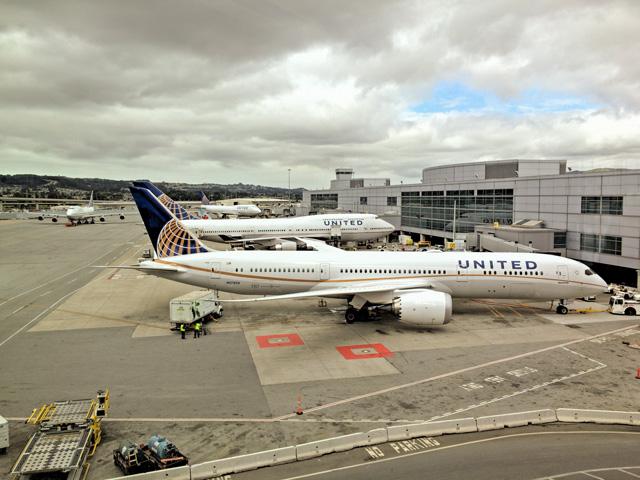Ethanol Market Taking Flight With SAF
United Airlines Partners With Ethanol Producer for Sustainable Aviation Fuel
OMAHA (DTN) -- Green Plains Inc., an Omaha-based ethanol producer, on Tuesday announced a joint venture with United Airlines and Tallgrass Energy Partners to develop and commercialize an ethanol-based sustainable aviation fuel (SAF).
The joint venture, called Blue Blade Energy, will use SAF technology developed at the U.S. Department of Energy's Pacific Northwest National Laboratory. The technology, if successful in its development, will convert ethanol feedstock into a low-carbon fuel for United Airlines.
The SAF could have emissions as much as 85% lower than United's current fuel supply. That includes some caveats, including that regulations are changed to allow using unblended low-carbon fuels rather than requiring SAF products to be blended with conventional jet fuel.
Todd Becker, president and CEO of Green Plains, said the project has the potential to be "a gamechanger for U.S. agriculture," as the aviation industry moves to decarbonize its fuel supplies.
"Our transformation to a true decarbonized biorefinery model has positioned Green Plains to help our customers and partners reduce the carbon intensity of their products by producing low-carbon proteins, oils, sugars and now decarbonized ethanol to be used in SAF," Becker said.
If successful, Blue Blade Energy would produce up to 135 million gallons of jet fuel annually. Becker, in an interview with DTN, said the conversion rate is about 1.7 gallons of ethanol to produce each gallon of jet fuel. That equates to just under 230 million gallons of ethanol that would go to SAF fuel for the project each year.
P[L1] D[0x0] M[300x250] OOP[F] ADUNIT[] T[]
"Jet fuel can consume so much more of this feedstock very quickly from ethanol plants," Becker said.
The project could produce enough SAF to fly more than 50,000 flights annually between United's hub airports in Chicago and Denver.
Michael Leskinen, president of United Airlines Ventures, told USA Today, "The magnitude of this deal and the volume of SAF that it could bring online in this decade dwarfs everything else."
In a statement, Leskinen added, "The production and use of SAF is the most effective and scalable tool the airline industry has to reduce carbon emissions, and United continues to lead the way. This new joint venture includes two expert collaborators that have the experience to construct and operate large-scale infrastructure, as well as the feedstock supply necessary for success."
Under the joint venture, Green Plains will supply the ethanol feedstock for the SAF from its ethanol plants in the Midwest. The initial facility would use ethanol, but "the technology has the ability to work with any alcohol-based feedstock as its source," the news release noted.
Tallgrass will manage the research and development, including building a pilot plant in 2024 that will start production of the aviation fuel. Becker said the new facility would likely be somewhere close to where Green Plains already has facilities in Iowa, Minnesota or Nebraska.
United will work on fuel certification and logistics and has agreed to buy up to 2.7 billion gallons of SAF from the joint venture.
"Air travel uniquely connects people and improves lives, and the advancement of this novel SAF technology presents a meaningful opportunity to reduce emissions from aviation," said Alison Nelson, vice president of business development at Tallgrass. "We are excited to partner with industry leaders United Airlines and Green Plains on this initiative."
The Inflation Reduction Act created multiple tax credits for Sustainable Aviation Fuels going forward. SAF from the project would qualify for a new Clean-Fuel Production Credit that could pay as much as $1.75 a gallon based on emission reductions.
United Airlines also could qualify for a new $1.50-a-gallon SAF tax credit passed by Illinois lawmakers last week. That bill, however, is still waiting approval by Illinois Gov. JB Pritzker. Becker said he thinks that state legislation could drive other states to provide similar incentives for SAF production and consumption as well.
"Other states will follow down the road when they see the opportunity to help their major airports decarbonize but also attract investments as well," Becker said.
Blue Blade Energy is just one of several joint ventures and projects involving the airline industry, as companies are in a rush to produce the next generation of sustainable aviation fuels. The Biden administration is championing a push to produce at least 3 billion gallons annually by 2030.
Chris Clayton can be reached at Chris.Clayton@dtn.com
Follow him on Twitter @ChrisClaytonDTN
(c) Copyright 2023 DTN, LLC. All rights reserved.



